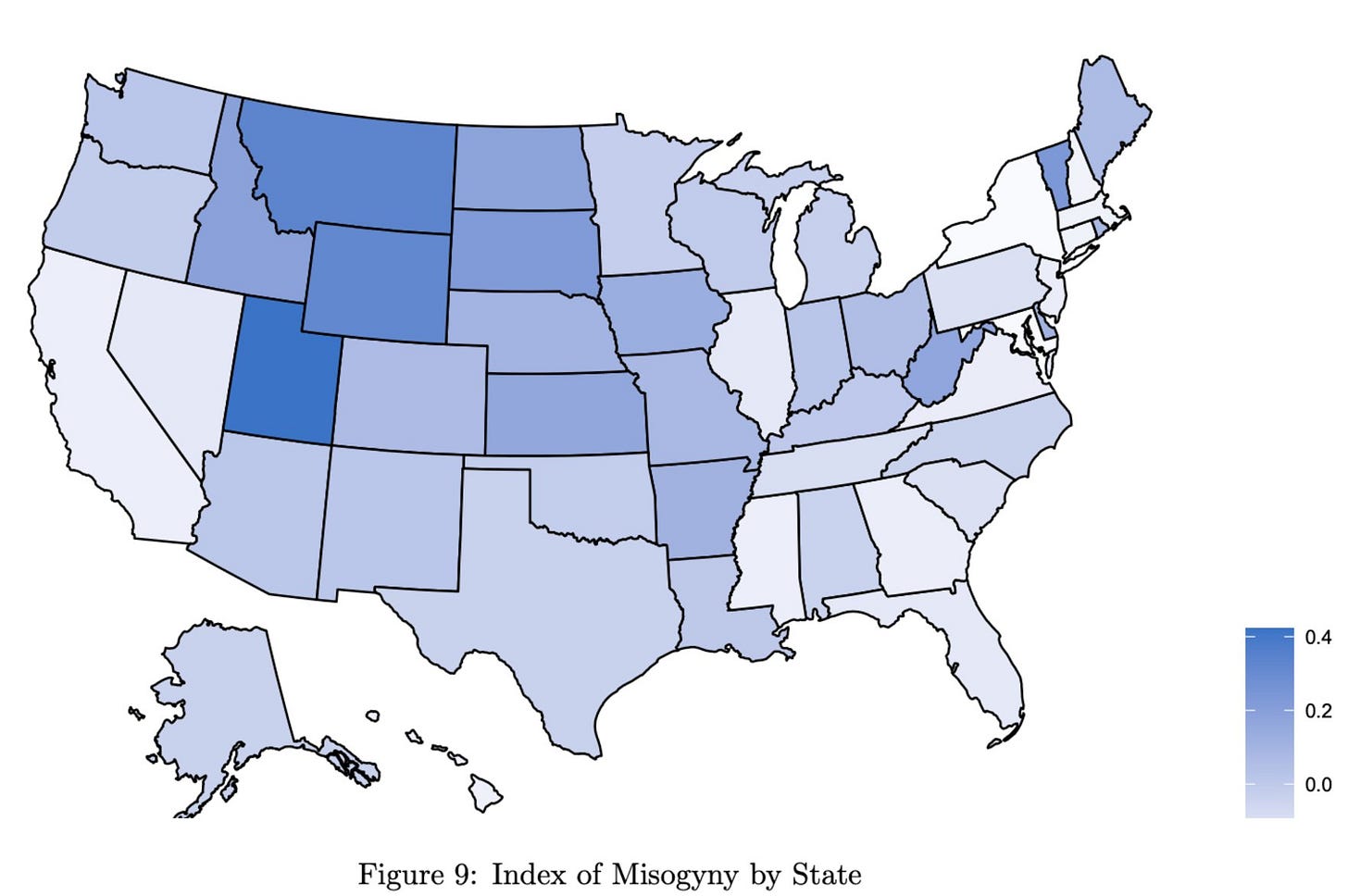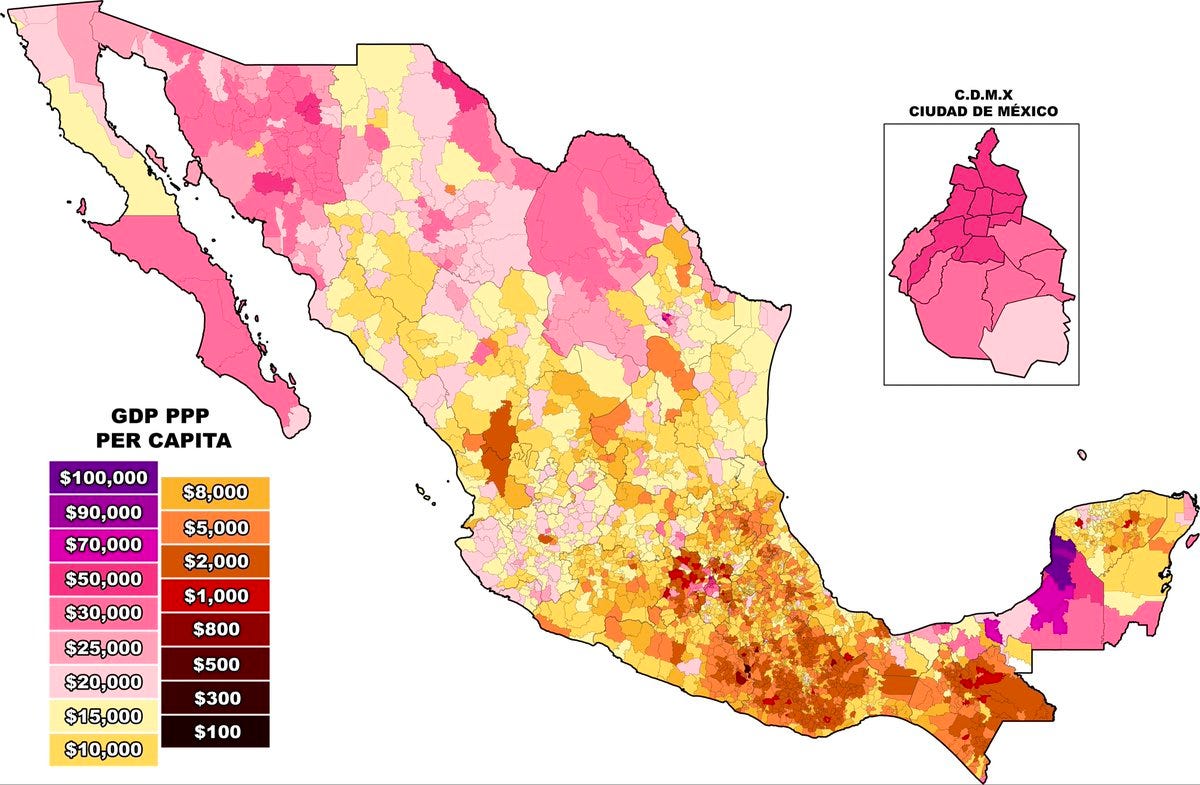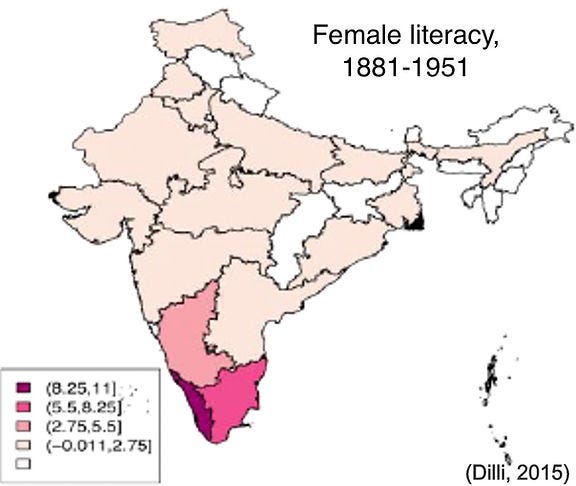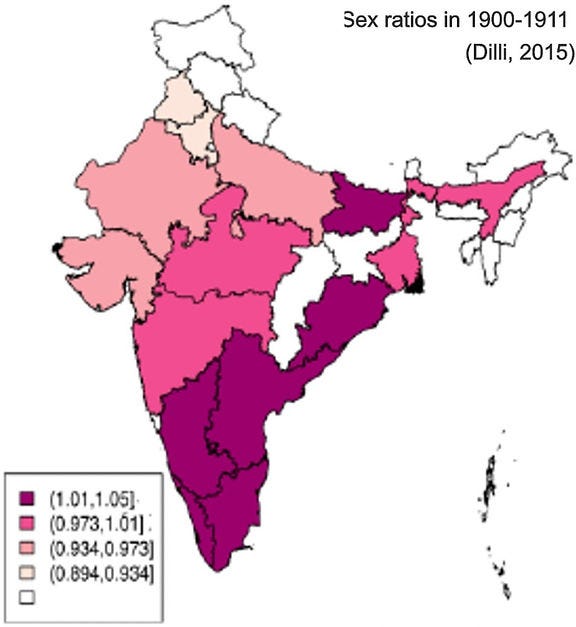What can Google Trends tell us about secularisation and masculinity in the US, Mexico and India?
As a social scientist, I see myself as constructing a four-dimensional jigsaw, piecing together little bits of data, identifying patterns and iteratively recalibrating. No methodology is perfect, each has its strengths and limitations.
Public opinion polls and time-use surveys are susceptible to social desirability bias. Individuals may strive to present themselves in a positive light. For instance, 41% of US fathers say that childcare is evenly shared. Only 31% of mothers concur. Men may be over-reporting. People’s answers may also be affected by the interviewer’s identity. If the Afrobarometer surveyor is female, men are 37% more likely to express strong support for gender equality.

Google Trends helps us triangulate. It reveals what internet users actually want to see and learn about. Misogynist searches (like bitch, cunt, whore, rape and gang bang) are especially high in the Mountain North West, and correlated with gender pay gaps.
Can we use Google Trends to explore competing preferences, like faith versus secularism or different visions of masculinity?
In the USA, Taylor Swift is now as popular as God. In New England, she wins. This is a useful indicator of secularism; it helps us triangulate self-reported data on identity, beliefs and prayer.
What about Mexican internet users? Are they more interested in religion or secular artists? Compare God, Jesus and the Virgin Mary versus Mexico’s top streaming artists (Peso Pluma, Bad Bunny and Shakira). ‘God’ peaked over Easter, but now lags behind.

Religiosity closely tracks GDP per capita. The gap is largest in poor Chiapas, but even then it’s only 60% vs 40% in favour of ‘Dios’. Mexico is secularising

In Ukraine, searches for God, prayer, and Jesus (бог + молитва + Ісус) peaked at the time of the Russian invasion.
Can we use Google Trends to compare competing masculine ideals?
“I’ve developed a simple test to detect misogyny in any Indian, Bangladeshi or Pakistani man. If a man likes Shah Rukh, he is usually progressive. If a man likes Salman, he is bad news. My test rarely fails” - one fan explained to Shrayana Bhattacharya in her marvellous book “Desperately Seeking Shah Rukh”.
Shah Rukh Khan and Salman Khan are both Bollywood legends. SRK typically depicts men who respect and listen to women. His on-screen persona resonates deeply with his female fans, as he embodies qualities that fulfil their unfulfilled desires - argues Bhattacharya. Salman’s characters are more macho and violent. He was previously convicted for hunting endangered blackbucks, then acquitted for hit-and-run.
In “Becoming New Men in a New India”, Shannon Philip observes that Delhi’s middle-class men strive to portray “manly hardness”. Aman warns, “if you keep smiling and looking soft, people will come and sit on your head”. Raj adds, “If you can’t protect your girlfriend, if you can’t fight for her, then why will she pick you? No girl wants a man who can’t protect her and fight for her”. These narratives all sound like Salman.
So, I wonder, who is actually more popular?
Right now, it’s close.
If we aggregate searches over the past year, we see a striking North-South variation. In Kerala, SRK beats Salman, 72:28. Over in Delhi and Punjab, 57% of searches are for Salman.
SRK appears more popular in regions with greater female freedoms. Southern and North-eastern women are more likely to survive infancy, be educated, marry later, choose their own husbands, interact more closely with their husbands, bear fewer children, own more assets, exercise more control over their dowry, socialise with friends, move more freely in their communities and work alongside men. If you’re curious as to why, then you may enjoy this blog.
Of course, this data is not representative. Only 46% of Indians have internet access. But it’s still useful, revealing that even as India modernises, its North-South divide persists. Likewise for Chiapas, we see that even among online users, ‘Dios’ beats ‘Bad Bunny’.
No methodology is perfect, but Google Trends is a neat way of comparing internet users’ priorities over time and between regions.
Let me know if you have other suggestions!











As a measure, Google Trends seems worthwhile for triangulation with other measures to show regional differences and trends, as you do here. Hopefully the remarks about the relative popularity of God and Taylor Swift are meant in jest. I'm not even sure what it would mean for one to be more popular than the other, being such radically different categories of thing.